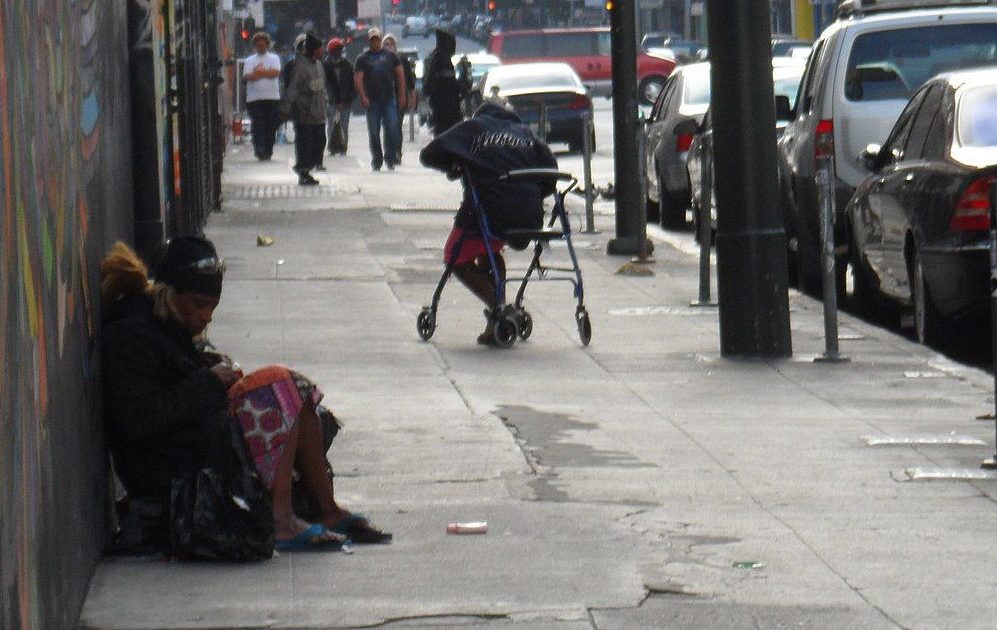‘Housing First’ Fails in San Francisco

Progressives in San Francisco know what they want, and, borrowing from Mencken, new reporting suggests they’re getting it good and hard.
Michael Shellenberger, journalist and author of San Fransicko, published a Substack piece Monday summarizing a conversation he had with a social-services provider in San Francisco. The anonymous official said that San Francisco’s “Housing First” policy of providing permanent and unconditional housing to the homeless has failed to reduce the size of the city’s massive homeless population. He said:
“San Francisco has more permanent supportive housing units per capita than any other city, and we doubled spending on homelessness, but the homeless population rose 13%, even as it went down in the U.S. And so we doubled our spending and the problem got worse. But if you say that, you get attacked.”
According to Point-in-Time (PIT) counts from the U.S. Department of Housing and Urban Development (HUD), San Francisco’s homeless population ballooned from roughly 5,400 in 2005 to more than 8,100 in 2020–a 60 percent surge that occurred amid a nationwide decline in homelessness.
Proponents argue the surge in vagrancy is unrelated to the city’s embrace of Housing First policies. The changing composition of San Francisco’s homeless population testifies to the opposite conclusion. In 2005, HUD found that eight percent of San Francisco’s homeless population had a serious mental illness, and 13 percent had a chronic substance-abuse issue. All of the homeless people with serious mental illness and/or substance-abuse issues counted by HUD in 2005 were found in the city’s homeless shelters.
Compare that to the results of HUD’s 2020 PIT count. Of the 8124 homeless people HUD officials counted in the city, 23 percent had a serious mental illness, and 24 percent had chronic substance-abuse issues. More than 85 percent of the seriously mentally ill and substance abusers counted by HUD officials in 2020 were found unsheltered on the street.
The spike in mental illness, drug addiction, and street-dwelling among the city’s homeless population demonstrates the limits of Housing First policies. People with untreated psychotic disorders and those addicted to drugs are particularly likely to slip through the cracks of any system. When they do, Shellenberger writes, Housing First advocates have left them few shelters to fall back on.
The main reason San Francisco lacks sufficient homeless shelters is because [activist Jennifer] Friedenbach and other Housing First advocates have long opposed them. They have demanded that money go to providing people with their own apartment units. The reason, Friedenbach explained to me, is that “if you ask unhoused people, they’re not screaming for shelter. They’re screaming for housing.”
Proponents of Housing First wish to upend the delivery of all social services in the United States. As then-deputy director Richard Cho wrote in a post on the U.S. Interagency Council on Homelessness’s website in 2014, Housing First grew out of the deinstitutionalization movement and quickly became a “whole-system orientation and response” meant to “change mainstream systems” of care.
Housing First is, and always has been, about changing mainstream systems. The approach emerged as a reaction to traditional mental health treatment modality, which thought that the way to address the needs of people with psychiatric symptoms on the street was to get them into psychiatric treatment, typically at an inpatient facility…Housing First’s role in changing mainstream systems should not stop with the mental health system. Housing is just as foundational to addiction recovery and psychical well-being as it is to mental health. The new frontiers of systems change are to engage the substance abuse treatment system and the mainstream health care system around housing.
The feces, used heroin needles, and Dickensian scenes of human misery are a small price to pay for many wine-track radicals in San Francisco who relish the chance to change “mainstream systems.”
Comments